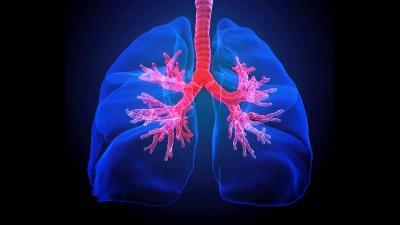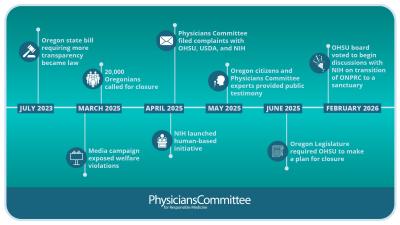Physicians Committee Urges NIDDK to Prioritize Human-Based Research

The National Institute of Diabetes and Digestive and Kidney Diseases (NIDDK) recently held a meeting of its Advisory Council to discuss research priorities aimed at improving the understanding and treatment of diabetes, digestive diseases, and kidney disorders.
In response, Physicians Committee experts submitted written comments urging NIDDK to strengthen its commitment to human-based research, such as new approach methodologies (NAMs), and phase out unproductive primate experiments in areas where human-relevant alternatives already exist.
The Physicians Committee applauds recent National Institutes of Health (NIH) actions to advance nonanimal, human-based science such as the new policy to no longer seek proposals exclusively for animal-based research. These changes are critical steps toward improving scientific rigor, replicability, and clinical relevance.
In our comment to the NIDDK Advisory Council, we:
- Commended NIH for their growing emphasis on human-based, nonanimal research methods.
- Highlighted that ongoing primate experiments in nutrition and metabolic research are unnecessary, unproductive, and ethically indefensible, given the clear availability of human-based alternatives.
- Recommended that NIDDK ends funding for primate research and expands support for human-relevant approaches such as microphysiological systems, stem cell technologies, and clinical studies with human volunteers.
Technologies such as fat-on-a-chip systems and other advanced human cell-based models can already replicate human metabolic activity with greater precision than animal studies, providing direct insights into conditions like obesity and type 2 diabetes. Encouragingly, NIDDK is already funding initiatives that reflect this modernization—such as the 2025 grant announcement supporting the use of human-specific models to study metabolic processes and disease mechanisms towards prevention of type 1 diabetes without the use of animals—showing the achievability of these technologies.
As the NIH continues implementing its Gold Standard Science Implementation Plan, which emphasizes replicable and translatable human-based technologies, the Physicians Committee encourages NIDDK to lead by example. Prioritizing human-centered research will not only reduce animal use but also accelerate progress toward effective prevention and treatment strategies for diabetes and digestive and kidney diseases.
Amid a broader, agency-wide shift toward more human-relevant science, the Physicians Committee remains committed to supporting and accelerating this important transition by working collaboratively with all NIH Institutes and Centers.







